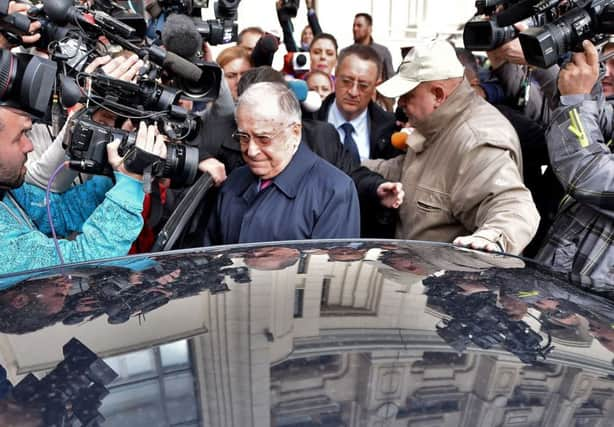‘Brutal’ Romanian leader faces justice after 25 years


Ion Iliescu, 85, went to the High Court of Cassation and Justice yesterday to hear charges connected to the violent repression of the June 1990 protest. He denies wrongdoing but made no statements during the session.
A court statement said Iliescu is being prosecuted for the deaths of four people, the shooting of three others and depriving 1,000 people of their freedom. Prosecutors have not explained why Iliescu is being charged with four deaths rather than six deaths which have been consistently reported.
Advertisement
Hide AdAdvertisement
Hide AdThe head of the Romanian Intelligence Service at the time, Virgil Magureanu, a close ally of Iliescu, also appeared before the court. Asked whether he was guilty of crimes against humanity, he said: “That’s a stupid question.”
Club-wielding coal miners and police broke up a weeks-long pro-democracy protest in Bucharest, arresting and beating up thousands of people.
Afterward, Iliescu thanked the miners, drawing criticism at home and abroad. Romanian television stations yesterday replayed footage of Iliescu thanking the miners.
The European Court of Human Rights has ordered Romania to pay compensation to victims.
The case was never properly investigated due to the continued presence of former communists in government. But in March, military prosecutors announced they had reopened the case.
Thousands of Romanians emigrated after the riots amid doubts about Romania’s commitment to democracy six months after the ousting and execution of Communist leader Nicolae Ceausescu.
Ceausescu’s rule from 1967 to 1989 became increasingly repressive, maintaining strict controls over the media and crushing dissent, and his secret police force was notorious for its brutality.
He ordered the export of much of Romania’s produce in 1982 with the aim of paying off the country’s national debt, leading to extreme shortages of food, medicines and fuel.
Advertisement
Hide AdAdvertisement
Hide AdHis regime, which was marked by nationalism, a personality cult and nepotism, collapsed after he ordered his security forces to open fire on anti-government protesters in the city of Timisoara in December 1989.
Ceausescu and his wife Elena fled the city by helicopter but were captured. On Christmas Day they were hastily tried and convicted of genocide. They were then shot by firing squad.